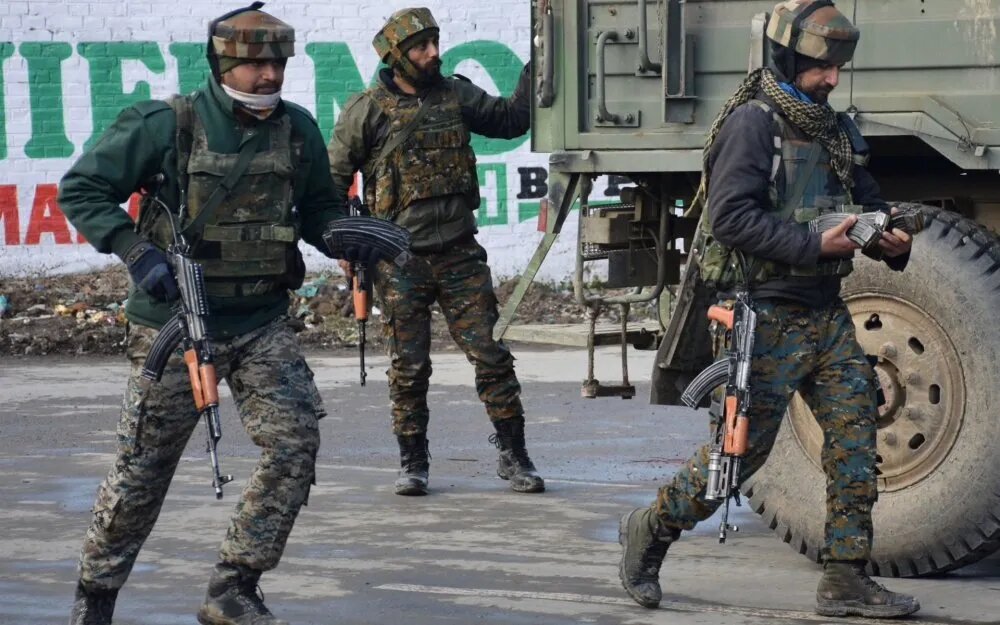In a series of intense encounters in Jammu &Kashmir, security forces have neutralized five terrorists in the Baramulla and Kathua districts, just ahead of Prime Minister Narendra Modi’s highly anticipated election rally in Doda. This escalation in violence, coupled with the deployment of multi-tier security measures, underscores the complex and volatile security landscape in the region as the election approaches.
The recent encounters began with a gunfight in Baramulla, where three terrorists were killed by security forces. This confrontation is significant as it occurred just as PM Modi is set to address a major rally in Doda, a district that has not hosted a Prime Ministerial visit in over four decades. The timing of these incidents is notable, given that the Bharatiya Janata Party (BJP) is aiming to bolster its position in Jammu and Kashmir through this high-profile rally.
In a separate operation in Kathua, troops from the Rising Star Corps, in coordination with the Jammu and Kashmir Police, successfully neutralized two terrorists. The operation, named Khandara, also resulted in the recovery of substantial arms and ammunition. The operation was a part of a broader strategy to tackle terrorism and maintain security in the region. However, it also led to the tragic loss of two army personnel, with two others injured during the encounter in Kishtwar district, highlighting the intense and dangerous nature of these operations.
The frequent attacks and encounters in Jammu and Kashmir have significant implications for the ongoing electoral dynamics. The BJP’s strategy of showcasing strong security measures and successful counter-terrorism operations is likely to resonate with voters, potentially garnering sympathy votes. The party’s emphasis on security and its proactive stance in addressing terrorist threats could reinforce its image as a defender of national integrity and stability. This, in turn, might influence voter sentiment in favor of the BJP, particularly in the context of a high-stakes election where security is a paramount concern.
The persistent frequency of terrorist attacks and security challenges in Jammu & Kashmir necessitates a comprehensive approach to ensure long-term peace and stability. The current strategy of military operations and heightened security measures is crucial, but it must be complemented by broader initiatives aimed at addressing the root causes of terrorism. This includes enhancing local governance, promoting economic development, and engaging in dialogue with various stakeholders to foster lasting peace.
Moreover, the central and state governments need to ensure that security forces operate with precision and minimize collateral damage, while also addressing the grievances of the local population. It is essential to balance security operations with efforts to build trust and support among the residents of Jammu and Kashmir.
The violence and attacks in the region are a stark reminder of the ongoing conflict and the challenges faced by security forces. As Prime Minister Modi’s rally in Doda approaches, the focus will not only be on showcasing the government’s efforts in combating terrorism but also on ensuring that the electorate feels secure and heard.
The recent encounters in Jammu and Kashmir have significant electoral and strategic implications. While they may provide the BJP with an opportunity to emphasize its commitment to national security, they also highlight the need for a nuanced approach to address the persistent security challenges. Ensuring a safe environment for elections and fostering long-term peace in the region will require sustained efforts and a holistic strategy.
